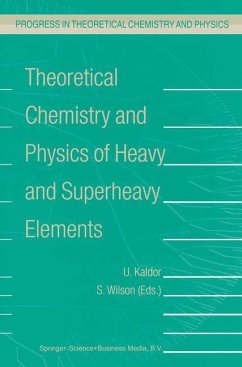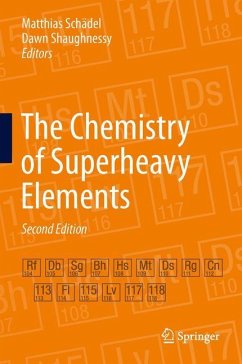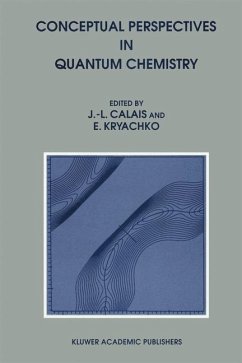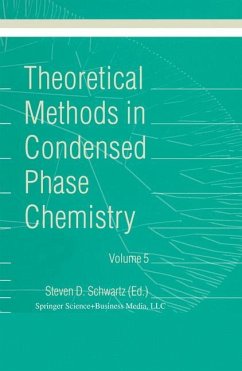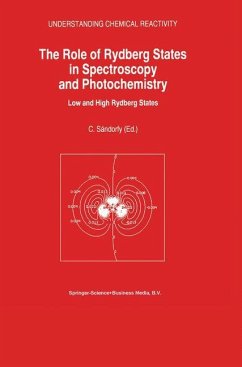
Theoretical Chemistry and Physics of Heavy and Superheavy Elements
Versandkostenfrei!
Versandfertig in 1-2 Wochen
153,99 €
inkl. MwSt.

PAYBACK Punkte
77 °P sammeln!
Quantum mechanics provides the fundamental theoretical apparatus for describing the structure and properties of atoms and molecules in terms of the behaviour of their fundamental components, electrons and nudeL For heavy atoms and molecules containing them, the electrons can move at speeds which represent a substantial fraction of the speed of light, and thus relativity must be taken into account. Relativistic quantum mechanics therefore provides the basic formalism for calculating the properties of heavy-atom systems. The purpose of this book is to provide a detailed description of the applic...
Quantum mechanics provides the fundamental theoretical apparatus for describing the structure and properties of atoms and molecules in terms of the behaviour of their fundamental components, electrons and nudeL For heavy atoms and molecules containing them, the electrons can move at speeds which represent a substantial fraction of the speed of light, and thus relativity must be taken into account. Relativistic quantum mechanics therefore provides the basic formalism for calculating the properties of heavy-atom systems. The purpose of this book is to provide a detailed description of the application of relativistic quantum mechanics to the many-body prob lem in the theoretical chemistry and physics of heavy and superheavy elements. Recent years have witnessed a continued and growing interest in relativistic quantum chemical methods and the associated computa tional algorithms which facilitate their application. This interest is fu elled by the need to develop robust, yet efficienttheoretical approaches, together with efficient algorithms, which can be applied to atoms in the lower part of the Periodic Table and, more particularly, molecules and molecular entities containing such atoms. Such relativistic theories and computational algorithms are an essential ingredient for the description of heavy element chemistry, becoming even more important in the case of superheavy elements. They are destined to become an indispensable tool in the quantum chemist's armoury. Indeed, since relativity influences the structure of every atom in the Periodic Table, relativistic molecular structure methods may replace in many applications the non-relativistic techniques widely used in contemporary research.





